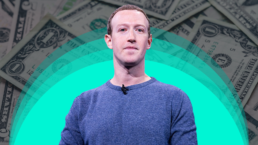Alex Shephard, The New Republic
Speaking to Recode earlier this year, Facebook founder Mark Zuckerberg made his case for Facebook. “I think if you look at the grand arc here, what’s really happening is individuals are getting more power and more opportunity to create the lives and the jobs that they want,” Zuckerberg told Casey Newton. “And to connect with people they want. And to connect to the ideas that they want and to share the ideas that they want. And I just think that that will lead to a better world. It will be different from the world that we had before. I think it will be more diverse, I think more different ideas and models will be able to exist.”

But Zuckerberg suggested that a problem remained. By empowering individuals, Facebook was disrupting a hierarchy that had existed for generations: “My concern is that we’re too frequently telling the negative sides of it, from the perspective of the institutions that may be not on the winning side of these changes.” For the last several years, Facebook had been besieged by a narrative that its products were making the world an uglier and divisive place. Here, Zuckerberg inverted the critique: The real victims of Facebook’s rise weren’t its users but a number of dusty institutions that were raging as their power was being redistributed to the people. In this version of events, Facebook wasn’t just empowering its users, it was liberating them.
Recent Posts
‘Unconstitutional. Unethical. Authoritarian.’ ICE Bars Millions Of Immigrants From Bond Hearings
July 18, 2025
Take Action Now One watchdog said the new policy “seems like a blatant attempt to stop them from exercising their right to due process.”……
Americans Are Not Nearly Alarmed Enough About Climate Change
July 18, 2025
Take Action Now Americans still don’t comprehend how imminent, dangerous, and far-reaching the threat is—and journalists are partly to blame.By…
The IRS Is Building A Vast System To Share Millions Of Taxpayers’ Data With ICE
July 17, 2025
Take Action Now ProPublica has obtained the blueprint for the Trump administration’s unprecedented plan to turn over IRS records to Homeland Security…
Israel’s Sudden Assault On Syria Is Unchecked Aggression
July 17, 2025
Take Action Now Jerusalem is bombing Damascus and threatening al-Sharaa’s rule, while Washington was hoping to help the nascent government on…




